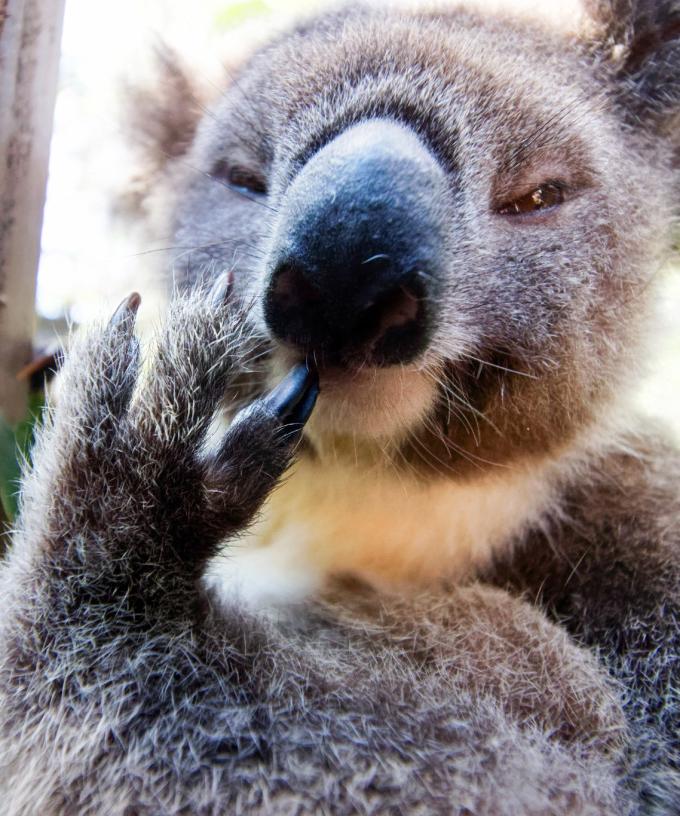An inquisitive and gentle baby koala found crying for its mother during one of the worst days of this year’s catastrophic flooding in the NSW Northern Rivers has been released back into the wild.
Koala joey Gulliver was found walking on the ground alone in torrential rainfall at Tregeagle, west of Ballina, on February 28.
Gulliver was rescued on the same day hundreds of residents from towns in the Northern Rivers were stranded on rooftops, as floodwaters inundated Lismore and surrounding areas.
NSW Premier Dominic Perrottet told media at the time the situation was “unprecedented” and “distressing”.
Gulliver was calling for its mother, which could not be located by rescuers.
The 14-month-old marsupial was taken in by rescue organisation Friends of the Koala, which partners with the International Fund for Animal Welfare (IFAW) to care for koalas and return them to the wild.
Gulliver was found to be in good shape by vet Jodie Wakeman, but because of its young age the joey was put into at-home care until it was old enough to return to the bush.
The young koala was alert, inquisitive and gentle-natured, according to its carers.
After nearly five months in care, Gulliver was released back into the wild last week.
IFAW animal rescue program officer Nicole Rojas-Marin said floods have a major impact on wildlife and a single survival can be vital to an endangered species.
“While people may think koalas are safe at the top of trees, the reality is that they’re at real risk of being separated from their mothers or becoming injured and unwell,” she said.
“Gulliver is very lucky that he was rescued when he was — he could have ended up in a far worse situation, but instead, after months of expert care, has now been released back into the wild, where he’ll hopefully thrive.”
Dr Wakeman said the survival of little Gulliver has given rescuers at Friends of the Koala a positive focus, after many endured losses during the Northern Rivers floods.
“Being directly involved in the rescue, rehabilitation and release of Gulliver … gives us hope for the future of our endangered species,” she said.







